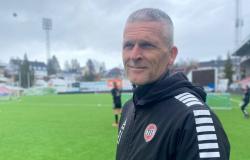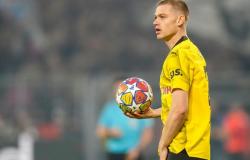Konnerud Sports Club receives 350,000 plastic bag kroner for even better security barriers around the artificial grass pitch as part of a new nationwide project.
CONVERTIBLE: Every year, 1,500 tonnes of plastic disappear from Norwegian artificial grass pitches. In December 2023, the news came that Handelens Miljøfond is allocating NOK 80 million to measures against the spread of rubber granules from Norwegian football pitches, and in March they launched, in collaboration with the Norwegian Football Association, the initiative “More football, less plastic” – in which they opened the door for clubs and pitch owners all over the country could apply for support for environmental measures.
In the first phase, NOK 40 million plastic bags will be distributed, and among the clubs that have received support so far is Konnerud Idrettslag, which will receive NOK 350,000 to build a barrier around the artificial turf field.
The initiative is the boost of the times to solve the challenge associated with rubber granules going astray. With physical barriers on all artificial grass pitches in Norway, it is hoped to reduce up to 95 per cent of the granule leakage.
– There has been great interest in receiving support for environmental measures at local football pitches, and it is good to see that so many football clubs across the country are taking the issue seriously. Konnerud Idrettslag is one of many clubs that accepted the lace fitting and is contributing to more football and less plastic, says Cecilie Lind, head of Handelens Miljøfond.
Shall build a barrier around local artificial grass pitches
The clubs and pitch owners who have been allocated funds must take measures to prevent rubber granules ending up in nature, such as physical barriers on and around the football pitches.
At the Konnerud stadium, hectic construction work is currently underway with the extension of the pitch areas, and last year a new artificial grass mat – and large quantities of new rubber granules – was installed on the main pitch. In the same area, three new, smaller three-court courts were established for games of racquetball.
It is around this area that further measures are now to be put in place, after the municipality installed fences with grates and brooms at the locks leading out and onto the track last autumn.
Konnerud Fotball leader Øystein Claussen-Julsrud informs DRM24 that the funds will, among other things, build new and tight fences, as well as several other measures in the area during the summer.
Furthermore, before the summer holidays, the club will also be able to open a new artificial grass pitch for nine-a-side football in the old car park behind the stadium, where corresponding security will also be in place.
– A major environmental problem
– This is a real problem on many of the country’s artificial grass pitches right now. Many clubs and municipalities are lagging behind, and we neither can nor will close our eyes to an environmental challenge. The fact that so many clubs have already applied shows that they really want to reduce the wastage of rubber granules, says Lise Klaveness, president of the Norwegian Football Association.
Rubber granules that disappear into nature are a major social challenge and environmental problem. In Norway, there are over 2,000 artificial grass pitches, and calculations estimate that around 1,500 tonnes of rubber granules are spread from these pitches each year.
In practice, this means that between half and one tonne of rubber granules disappear from each artificial grass pitch where environmental measures have not been established in accordance with regulations.
– Football is an incredibly important arena for children, young people and adults all over the country, and we at Handelens Miljøfond are happy to be able to use plastic bag crowns for such a concrete project which we know gives a significant environmental footprint – and at the same time contributes to more football activity in Norwegian paths, says Lind.
It is still possible to apply for support
In September last year, the EU decided to ban the sale and marketing of rubber granules as infill material in artificial grass pitches from 2031. This means that rubber granules must be phased out of Norwegian football pitches and replaced with another type of infill.
Physical barriers around the artificial grass pitches will also be important when environmentally friendly and good alternatives replace the rubber granules.
– The most important thing for us is to reduce plastic in nature, but it is also not desirable to have other types of infill on the way from an environmental perspective. This measure is definitely an investment for the future, says Lind.
So far, just under 100 clubs have applied for support, but there are still more plastic bag crowns to be distributed. Handelens Miljøfond and the Norwegian Football Association encourage clubs that have not applied to be inspired by those that have already done so. The application portal is open until 7 June.






